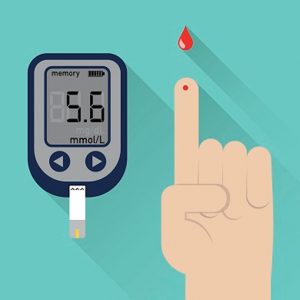Type 2 diabetes is a condition associated with the body becoming resistant to insulin and over time reducing the capability to produce enough insulin from the pancreas. Insulin is what helps turn glucose into energy for the body and is essential for maintaining good health. There are a number of risk factors that increase the likelihood of developing type 2 diabetes. These risk factors may include those who:
- have a family history of diabetes
- are older (over 55 years of age)
- are overweight or obese
- are over 45 years of age and have high blood pressure
- are over 35 years of age and are from an Aboriginal or Torres Strait Islander background
- are over 35 years of age and are from Pacific Island, Indian subcontinent or Chinese cultural background
- are a woman who has given birth to a child over 4.5kgs, or had gestational diabetes when pregnant, or have polycystic ovarian syndrome.
The management of type 2 diabetes is very individualised and typically includes a combination of lifestyle modification and medication. Traditionally, type 2 diabetes has been considered a progressive condition meaning that over time people will require increases in medication may eventually require insulin.
However, excitingly there have been several recent studies opposing that view. Recent research has increasingly led to the understanding that in certain cases not only can the progression of type 2 diabetes be slowed but it can also be regressed allowing people to be considered in remission. This is typically achieved through dramatic lifestyle changes including very strict diet and exercise regimes and generally occurs when diagnosed early. For type 2 diabetes to be considered in remission a persons HbA1c must be less than 6.5% for a minimum of 3 months without the need for glucose lowering medication.
Although exciting, it is important to understand that remission may not be possible for everyone with type 2 diabetes. As previously stated, a person’s journey with type 2 diabetes is very individualised and each person will respond differently to treatment. People with type 2 diabetes who want to attempt achieving diabetes remission must do so in close consultation with their diabetes healthcare team. Additionally, it’s important to note that remission does not necessarily mean cure. Remission is generally most successful in those who have been living with diabetes for less than 5 years.
It should also be noted that even if remission is not achieved it should not be seen as a failure. Improvements in HbA1c and other anthropometric measures such as weight and waist circumference significantly decrease the risk of diabetic related complications.




